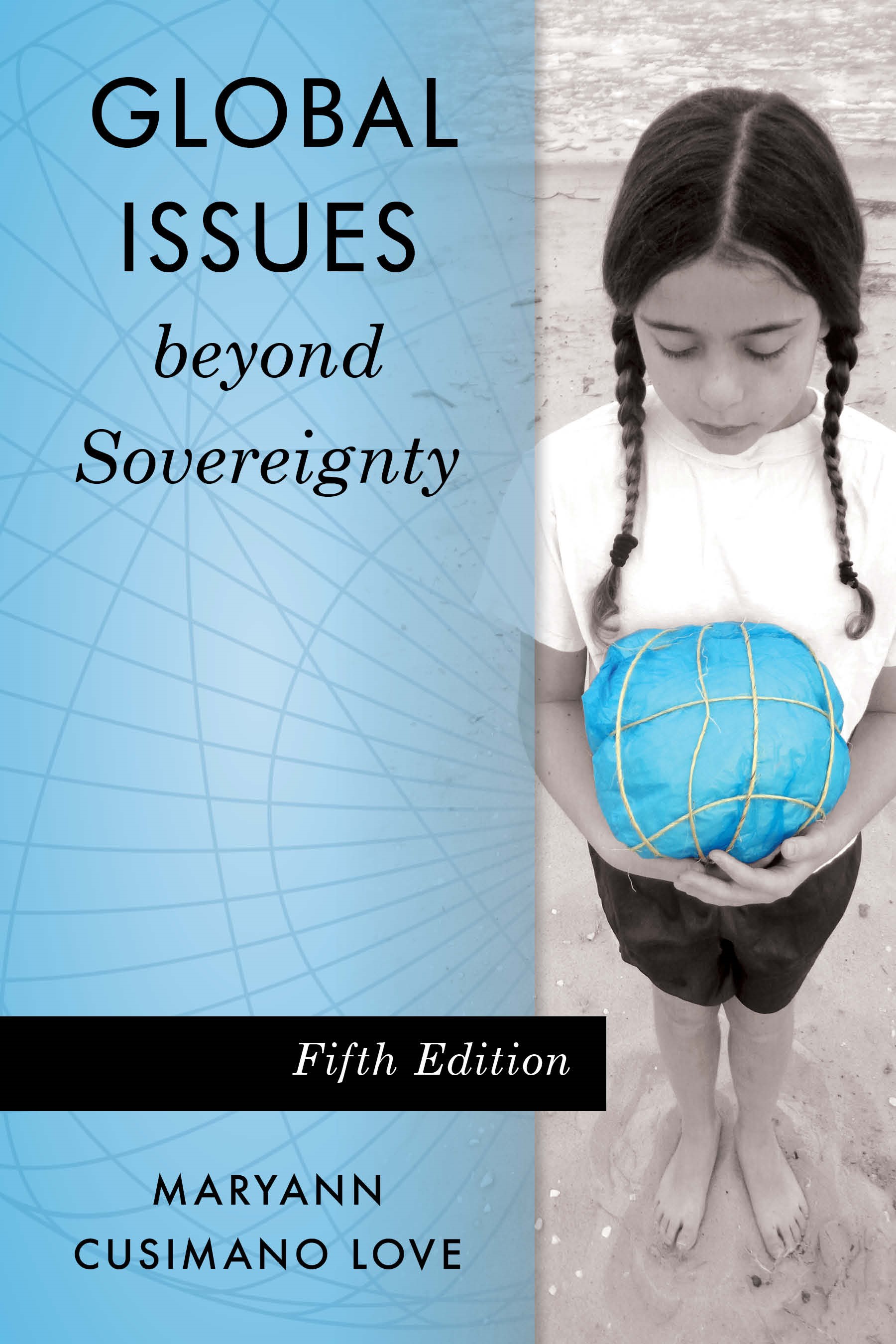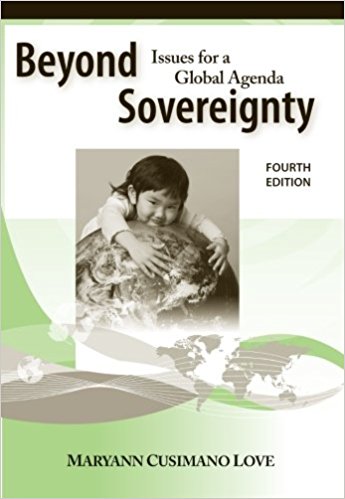

Professor Love is a member of the following:
She was a Crapa Fellow for the U.S. Commission on International Religious Freedom in 2010. She serves as the International Affairs Editor for America magazine, and is a New York Times bestselling children's author.

Other global issues books are a rather eclectic mash up of topics, headlines du jour, with an "and now this!" organizational scheme. The "hot" topics may have cooled by press time, and the presentation to students is disjointed, not clear. The approach is often a "scare 'em and leave 'em" presentation of a global horror show of problems, without clear arguments about the connections among the issues, or integrated discussions of solutions.
In contrast, Global Issues Beyond Sovereignty provides a thesis and a common narrative throughout the "issue" chapters. The range of responses to manage global issues are compared and discussed throughout. Global problems move at internet speed; governments do not move so quickly. This creates gaps in what citizens expect the state to do, and what countries have the capacities to do. This paradox is a problem not only for weak or failing states; even the strongest states in the system struggle in how to effectively respond to global issues, from cybersecurity to environmental toxins. States cannot solve or manage trans-sovereign issues alone. The power of the private sector is growing (both legal and illegal, for profit and non-profit), while state power is flat or in some places declining.
While private sector actors have means to impact transnational issues, they do not have a public mandate to do so. Countries increasingly must learn how to play well with others; this is easier said than done. Attempts to manage global issues flow through three channels: public sector responses, private sector responses, and mixed public-private partnerships. All three channels are explored throughout the book, uniting the issue chapters in a common discussion of challenges and responses. The conclusion presents lessons learned for theory and practice from managing global issues.
Book chapter for Women, Religion, and Peace. Women of faith are at the frontlines of building peace around the world, yet are often overlooked by governments, scholars, and the media. This book chapter draws from my interviews with women peacebuilders in dozens of countries.
Learn More
From refugees to terrorism to cybersecurity, global issues go beyond borders, but our policy responses too often do not. Governments do not move in internet time; how can we harvest the benefits of globalization's open societies, open economies, and open technologies, while managing the challenges?
Learn More